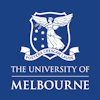|
When Optus’s mobile and fixed-line services went dead at about 4am east coast time on Tuesday, no-one who knew anything was talking, for hours.
Into the void stepped Communications Minister Michelle Rowland, who was forced to concede on breakfast radio that hours after critical communications infrastructure had stopped working, disrupting services including railways, shops and hospitals, she hadn’t heard from or been able to get in touch with the head of Optus, Kelly Bayer Rosmarin.
When Bayer Rosmarin finally did speak, six hours after the shutdown began, it was to the ABC via WhatsApp. And she had nothing much to say other than that she recognised “how important connectivity is to all of our customers.”
Today, Alison Stieven-Taylor says Bayer Rosmarin ought to have had a communications plan in place. She ought to have had the importance of one drummed into her a year ago when an Optus data breach exposed the personal details of up to 9.8 million of its present and former customers.
Although we’re still unsure of the cause, all signs seem to point to some kind of issue in the “core network” – or in other words, the systems that allow Optus customers to connect to phone and internet services.
Specifically, our authors suggest the outage was likely a result of a system fault – such as a scheduled outage gone wrong.
It could also be due to a bug in an accounting or user management system, which may have then had a cascading effect.
In any case, Optus will likely want to make amends for the damage caused, and may do so in the form of reduced bills for customers. It ought to act quickly if it wants keep its reputation, especially since the memory of last year’s data breach looms over us still.
|

|
Peter Martin
Economics Editor
|
|

Alison Stieven-Taylor, Monash University
Optus has let the story run away from it and failed to show contrition, for the second time in a little over a year.
|

Paul Haskell-Dowland, Edith Cowan University; Mark A Gregory, RMIT University; Mohiuddin Ahmed, Edith Cowan University
Optus suffered one of the largest telecommunications outages in Australian history today. Here are the factors that can cause such events.
|

Wesley Morgan, Griffith University
In 1997, John Howard chose expansion of Australian fossil fuels over Pacific concerns about climate change. Will Albanese finally mend the rift?
|

Jingdong Yuan, University of Sydney
Beijing focused on the shared interests and identities between China and Australia, emphasising the enduring importance of the bilateral economic relationship.
|

Kate Burridge, Monash University; Stephen Cordner, Victorian Institute of Forensic Medicine
The meanings we carry around in our heads seem so natural and inborn that we fail to realise other people can have quite different understandings.
|

Bethany Layne, De Montfort University
Queen Elizabeth II managed to claw back popular support after the PR disasters around her handing of Diana’s divorce from Prince Charles and her response when she died.
|

Winnie Tong, UNSW Sydney; Jacqueline Loprete, UNSW Sydney
Up to 20% of Australians admitted in hospital say they have a penicillin allergy. But not everyone who thinks they’re allergic to penicillin actually is.
|

Tina Daniel, Australian Catholic University; Signy Wegener, Australian Catholic University
NAPLAN results alarmingly show almost one in three Australian children don’t meet the expected standard in Year 3.
|

Christopher Pollard, Deakin University
Traditional capitalists are still flourishing, but according to Yanis Varoufakis they are not driving the economy like they used to.
|

Nicole Cook, University of Wollongong; Sophie-May Kerr, UNSW Sydney
Apartment residents need more sustainable, climate-adapted designs. They shouldn’t have to depend on costly, high-emissions air conditioning to remain comfortable and healthy.
|

Jarryd Bartle, RMIT University; Nicole Lee, Curtin University
Testing workers for drug and alcohol use can reduce injuries but is less effective than a comprehensive approach to improving staff health.
|
Politics + Society
|
-
Michelle Grattan, University of Canberra
In this podcast, former Labor climate change minister Greg Combet joins The Conversation to discuss net-zero, and Australia's future as a "renewable energy superpower".
|
|
Health + Medicine
|
-
Yaqoot Fatima, The University of Queensland; Daniel Sullivan, The University of Queensland; Romola Bucks, The University of Western Australia; Roslyn Von Senden, The University of Queensland; Shannon Edmed, The University of Queensland
Poor sleep deprives First Nations people of the chance to connect with culture. So they co-designed a sleep apnoea program they’d actually use.
-
Kaaren Mathias, University of Canterbury
Group therapy can be at least as effective as individual therapy. It improves mental health by giving people a stronger sense of belonging – without medicines, hospitals or expensive professionals.
|
|
Science + Technology
|
-
Fan Yang, The University of Melbourne; Ausma Bernot, Charles Sturt University
How can the world regulate AI? Europe’s comprehensive approach, China’s tightly targeted laws, and America’s dramatic executive order hint at three ways forward.
|
|
Environment + Energy
|
-
Michelle Grattan, University of Canberra
In this podcast, former Labor climate change minister Greg Combet joins The Conversation to discuss net-zero, and Australia's future as a "renewable energy superpower".
|
|
Arts + Culture
|
-
Sasha Grishin, Australian National University
Vasily Kandinsky (1866-1944) was a pioneer of abstract art. His paintings have not aged and appear contemporary and relevant to us now.
|
|
| |
|
|
|
The Conversation AU
Melbourne VIC, Australia
•
Full Time
|

|
|
|
|
| |
| |

|
| |
| |
| |
Featured Events, Courses & Podcasts
|
View all
|
|
1 January 2023 - 7 October 2026
•
|

|
21 - 22 November 2023
•
Melbourne
|

|
|
|

|
16 November 2023
•
Sydney
|

|
|
|
|
| |
| |
| |
| |
| |
|
|